Six Principles of Eating Clean
A buzz phrase among health-conscious consumers, “Eating Clean,” is a concept that stresses healthy, whole, unprocessed foods. The principles are based on current nutrition science and are similar to recommendations made by public health organizations. This sound approach to eating and living well maximizes your energy and optimizes your health.
Here are Six Principles of Clean Eating based on the book The Complete Idiot’s Guide to Eating Clean, written by Diane Welland MS, RD. Scroll to the bottom of the post for a handy grocery list of healthy clean eating foods.
1) Choose whole, natural foods and seek to eliminate or minimize processed foods.
Processed foods are anything in a box, bag, can, or package, and although there are always a few exceptions to the rule (like a bag of fresh green beans), the majority of your foods should be fresh.
2) Choose unrefined over refined foods and fill half your plate with fresh vegetables and fruit.
While it may not be possible all the times, you can up your intake of whole grains like brown rice, millet, amaranth, and quinoa. Beans and legumes are also important. Load at least half your plate with high volume, high nutrient density vegetables and fruits.
Clean sugars include honey, agave nectar, barley malt, maple syrup, and dehydrated sugar cane juice. Avoid artificial sweeteners like stevia, sucralose and aspartame.
3) Include some protein, carbohydrate and fat at every meal.
Most of us typically do well with carbohydrates and fat, but we often lack protein, especially in the early part of the day, like at breakfast and lunch. Protein is an important muscle-builder, and it can also help curb your appetite. When eaten throughout the day, it keeps us feeling full longer.
Don’t forget to include healthy fats — like those from nuts, avocados and olive oil — they help to keep us satisfied, stabilize our blood sugar levels and lower cholesterol levels. Use healthy oils such as olive oil, canola oil, avocado, nuts, seeds, nut butters.
4) Watch out for fat, salt, and sugar.
This is easier than you think, particularly if you’ve cut out processed foods, which are responsible for most of our excess calories and high levels of fat, sugar, and salt.
Clean foods are usually naturally low in all of these ingredients.
5) Don’t drink your calories.
Drink plenty of water throughout your daily routine. Experts recommend drinking six to eight 8-ounce glasses, or about two liters, every day. The amount you need varies from person to person, depending on activity level and climate. If you’re not a big fan of water, you can up your intake of foods that are 85 to 95 percent water, such as celery, tomatoes, oranges and melons. High calorie drinks like specialty coffees and soft drinks, on average, tack on an extra 400 to 500 calories a day. Other clean drinks: low-fat, skim or almond milk and 100 percent fruit juice diluted with sparkling water.
6) Get moving.
Regular physical activity is a must for many reasons. Not only does it decrease fat, strengthen and build muscle, and help you burn more energy at rest, it keeps your heart, lungs, and bones healthy and strong.
Check out the following grocery list of foods to fill your pantry.


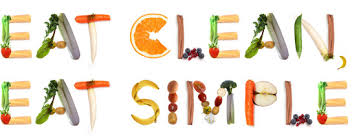
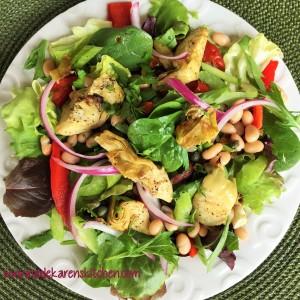
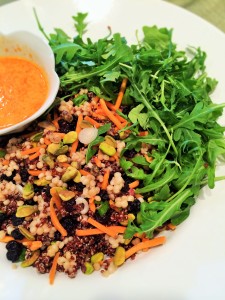
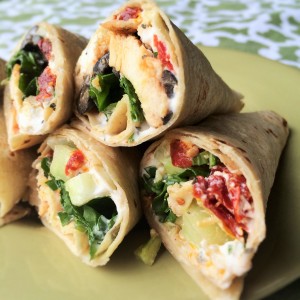
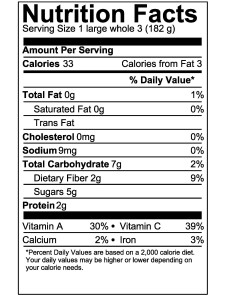
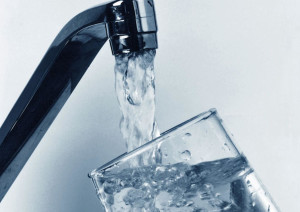
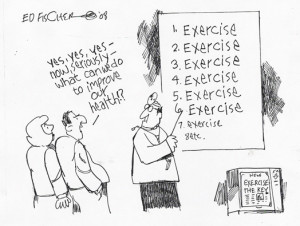
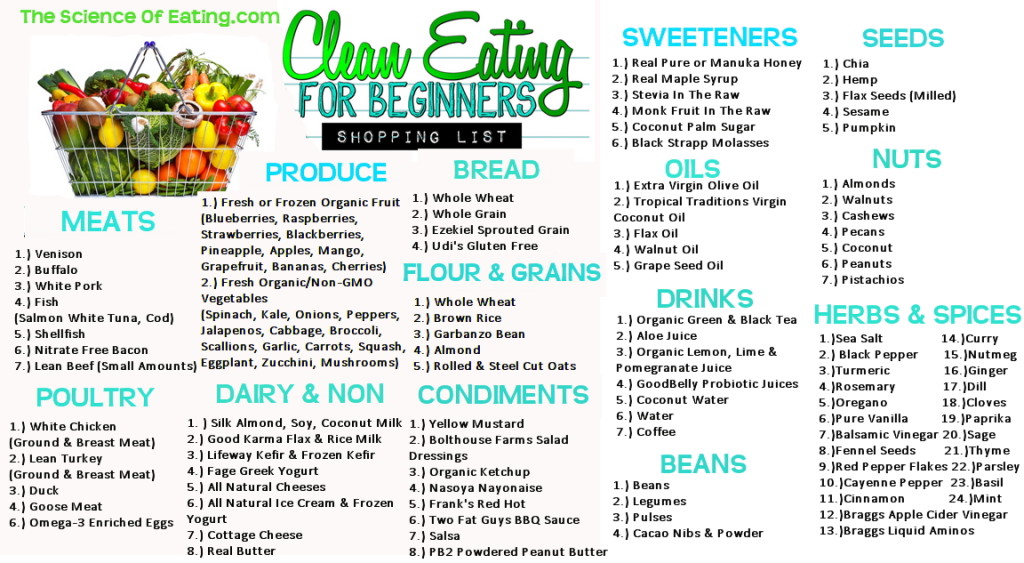
Gina Reddin
You have stevia listed as an artificial sweetener? Everything I have read over many years and many doctor friends contradicts that. They have always listed it as a substitute but never as artificial. Please expound.
Karen
Pure stevia from the leaf is not artificial and only found in health food stores (expensive too). Most stevia you buy in the stores is combined with either erythritol (sugar alcohol) or maltodextrin, forms of artificial sweeteners. I should have clarified this.